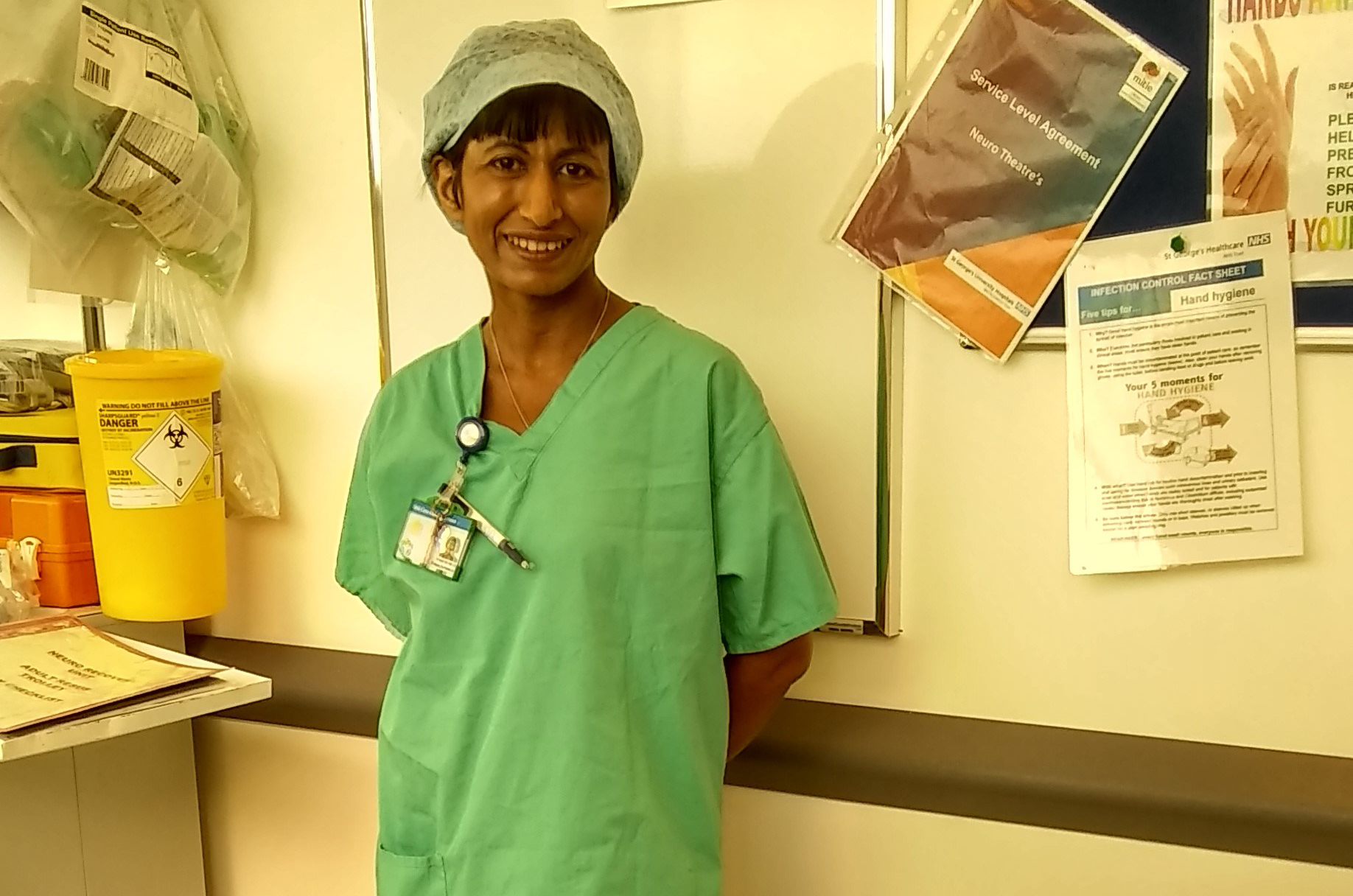"I don't think I'd have written these stories if I hadn't spent these years studying in Tooting."
Published: 06 March 2019
 Roopa Farooki
Roopa Farooki
International Women’s Day is an annual event which falls on 8 March each year. It has celebrated the achievements of women around the world since 1911. The theme for International Women’s Day 2019 is ‘Balance for Better’ to help forge a more gender-balanced world.
Roopa Farooki is a fourth-year graduate entry medic and published author. She is about to launch a series of children books about black, Asian and minority ethnic (BAME) women in science.
What inspired the books? And what are they about?
When I started medical school, I'd already written six literary novels, so I didn't have any great ambition to write another. But I thought it would be amazing to write something that my four young children could read. It turns out that writing for children is really hard, and I'm no Roald Dahl, so I wrote something like a thousand pages of fiction before I found the right story.
Immersed in medicine and the life of the hospital, I started thinking about these themes, and thought how great it might be to write something that got children excited about medicine and wellbeing and science.
I was also working on projects that promoted diverse voices and better minority representation in fiction. I thought it would be great for girls like my twin daughters to see a BAME protagonist in an aspirational role, a brilliant rule-breaker and a heroine. Someone smart enough to save a stranger and a loved one. A girl who could catch the bad guy and save the day.
And when I spoke to my editor, at Oxford University Press, about my project, about the sort of books I wanted my twin girls and two sons to find on the shelves, with people like them at the centre and not as the sidekick, I started thinking, why have one diverse heroine, when you can have two?
That was how the books began. Stories with twin heroines, who are brown-skinned, brave and aspirational. Game-changing girls who solve some dark medical mysteries and have a lot of fun along the way.
Did you find it an added challenge getting into medicine from a non-traditional background? Were your experiences an influence on any of the books?
I was on the graduate entry programme for medicine, and many of us came from non-traditional backgrounds. There were journalists, accountants, musicians, dancers and lawyers in our cohort. I think we all had to be pretty focused on the studying needed to get through the entrance exams.
My background was in the arts, so I checked out A level Biology, Chemistry and Physics textbooks from my local library, and worked my way through them. I also did six months of work experience in paediatric dermatology, skin cancer and general practice, so I knew what I was getting into. It was tough, but I knew it was what I wanted to do. And some of the life-skills and experience were a big help in getting through the clinical exams and placements.
Did St George’s, and your time studying here, have an influence or inspire any of the books?
Absolutely. You'll see lots of my medical student experiences in the books, and I based all the hospital scenes on the St George's site. (This is a habit of mine! The first time I wrote scenes about St George's was way back in 2007, in my first novel Bitter Sweets, which was based in Tooting.) I don't think I'd have written these particular stories if I hadn't spent these years studying and working in Tooting.
What do you hope the books achieve?
I'm really hoping they'll inspire lots of children to become interested in medicine and wellbeing, and maybe gain us some future doctors for the NHS ten years down the line!
I'm very proud to have written books with diverse, female heroines, as BAME characters are horribly underrepresented in children's fiction in the UK. Less than one percent of children's books will feature a BAME protagonist or be written by a BAME author. I think every child deserves to find themselves in fiction, and be encouraged to do anything they're passionate about, however difficult or aspirational.
How important is International Women’s Day to you?
It's really close to my heart. We need to celebrate the work and achievements of incredible women around the world, and encourage girls to grow up and not feel limited by gender, but empowered by it. I'm a mother of four, and a writer, and a lecturer, and this year, if I make it through the exams in the next few weeks, I'll be a doctor. I think women can do anything.
The first book in Roopa’s series is due for publication in early 2020 with Oxford University Press.
For more information on the books, you can contact Roopa and Oxford University Press on Twitter.
To keep abreast of International Women’s Day 2019, follow #BalanceforBetter on social media.